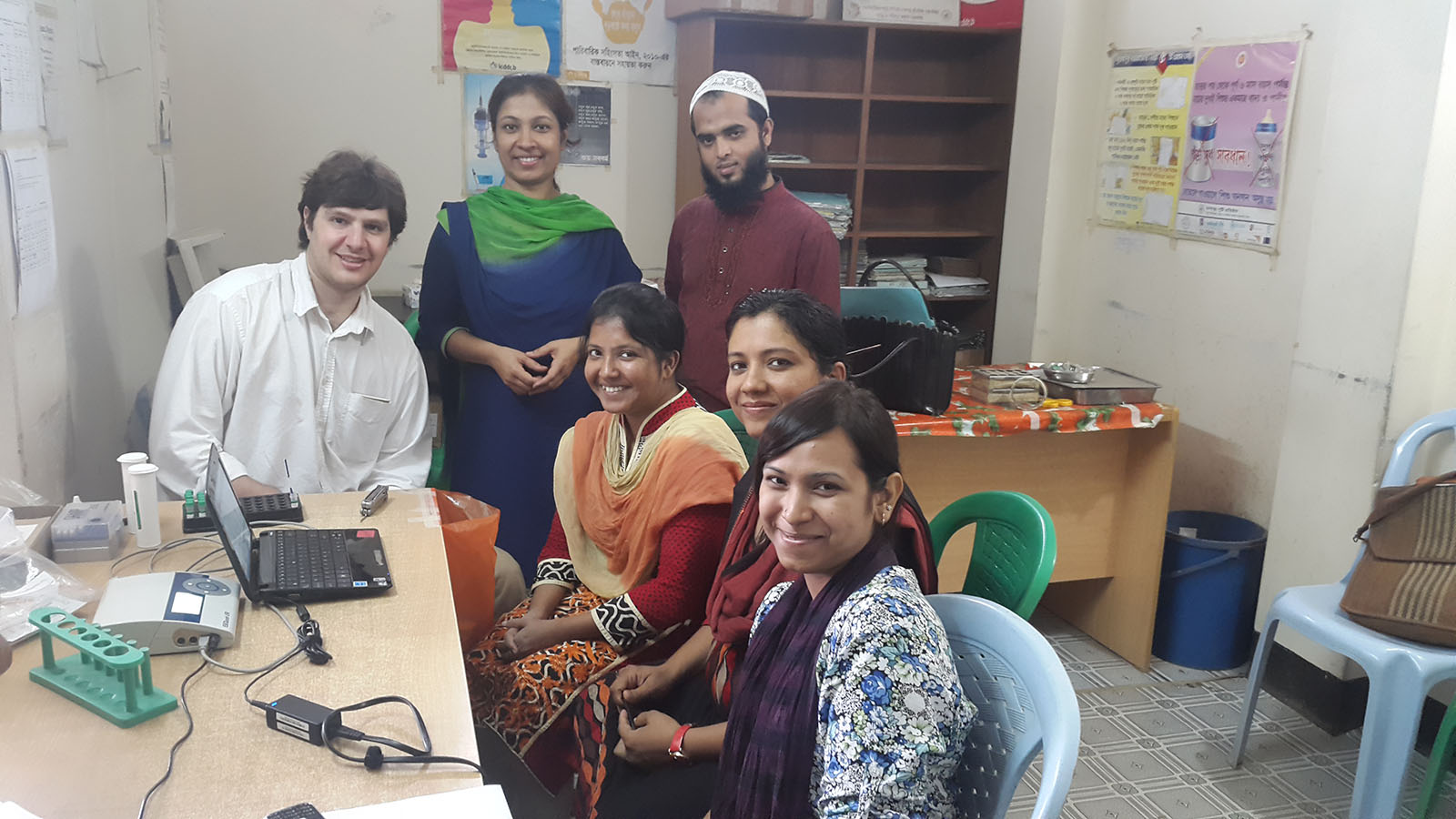
 As part of an academic medical center, we’re not just caring for kids and families today – we’re researching innovative ideas, discovering new treatments and improving outcomes. We’re also training tomorrow’s pediatric specialists so generations of kids to come can receive quality health care when they need it. We research for kids like Mikey and Anna.
As part of an academic medical center, we’re not just caring for kids and families today – we’re researching innovative ideas, discovering new treatments and improving outcomes. We’re also training tomorrow’s pediatric specialists so generations of kids to come can receive quality health care when they need it. We research for kids like Mikey and Anna.
Our Children’s Health Research Institute encourages and supports young researchers while they investigate their passions and make valuable contributions in the quest to find novel ways to fight disease and improve health. One of these change-makers is Dr. Jeffrey Donowitz.
Meet Jeffrey Donowitz, MD
Area of specialty: Pediatric Infectious Diseases
It began with an interest in children’s health in low-income countries. I had some clinical experience in this setting that allowed me to help a certain number of kids during each trip, but I found that research enabled me to make a difference on a grander scale. I fell in love with being on the cutting edge of our medical knowledge and using new scientific techniques to understand important medical problems. I also enjoy that my research allows me to interact with collaborators across the globe.
My main focus is on a condition called environmental enteric dysfunction.
The intersection of enteric inflammation, the gut microbiome and enteric pathogens. EED leads to growth stunting and neurodevelopmental delays.
A kid who is malnourished by age 2 is 60% more likely to die by age 5 than a child who is properly nourished. The neurodevelopmental delays associated with EED can have significant impacts on productivity even into adulthood. As we talk about helping low-income countries rise, this is a big deal.
The other arm of my research is related to COVID.
In the setting of the pandemic, I looked at my skill set and how I could help. In March, I spent weeks reading everything I could about the virus. I came up with some hypotheses on the human microbiome’s interaction with the COVID-19 virus and collaborated with colleagues across VCU to compile a request for funding from the National Science Foundation to study this further – and it was awarded. We’re taking microbiome and protein data, along with viral genomics and clinical data, and feeding the information into a mathematical model to predict the severity of COVID. Although there are now effective vaccines for COVID, this data can continue to be useful. Just as research related to SARS and MERS jumpstarted the COVID-19 investigations, research related to COVID will make us better prepared next time we’re faced with a coronavirus – and it will happen.
I currently have three funding sources – a National Institutes of Health K23 mentored career development award, backing from the NSF for our COVID work, and support from the Bill and Melinda Gates Foundation for my research into small intestine bacterial overgrowth’s role in environmental enteric dysfunction.
Before I was able to attain money from NIH, I was supported by the Children’s Hospital Foundation which was critical in providing protected time so I could secure the funding I have now.
There's no end in science. Each time you answer a question, if you do it right, it's just going to lead to more questions.
I would like my research to make a meaningful impact to combat malnutrition and improve the quality of life for kids in low-income countries. Everything I’ve done has built upon work before me. I want to look back on my career one day and see that I moved the ball forward so future researchers start their careers with more knowledge than I did.
I can’t imagine finding another institution as supportive as CHoR. I was very fortunate to land a residency here. When I expressed preliminary interest in research as a way to create a larger footprint of good, Drs. Bruce Rubin and Sue Lavoie both jumped all over my interest and supported me. Dr. Rubin went above and beyond to help me get a K12 grant, which funded part of my fellowship and helped me get started. Dr. Lavoie and Dr. Beth Marshall, my fellowship director, rearranged the entire fellowship curriculum to help me succeed. I was and continue to be given every opportunity to succeed including protected time, which is vital to any research career.
Everything we’re able to do in the clinical setting is the result of research that was done by those who came before us. Why is it important for US to be doing that research? First, it lets us offer the most cutting-edge technology to our patients. There are times we have to go outside the standard box with experimental diagnostics and therapies and research allows us to do that. Second, pairing researchers with clinicians is a model for success. Being one step ahead of where clinical science is going brings the entire department up and it also makes us better teachers as we train residents and fellows.
One of the things I was able to do because of my research background was start and run the convalescent plasma program at VCU Health when COVID hit. I was able to support our adult colleagues in that way because I understood both infectious diseases and the research infrastructure. Having researchers on hand is crucial to providing the best care across the board.